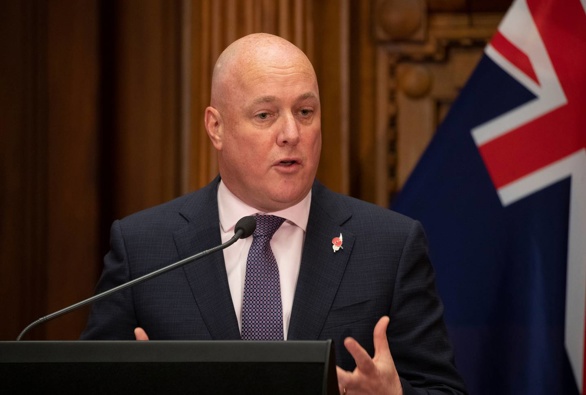We can dispute when the counter should have started – election night or the official results – but I suspect the waiting game will soon be forgotten as the new government is sworn in and the house sits in urgency.
At first blush, I actually think the biggest winner of the three parties is National. Perhaps you’d expect nothing less from the highest-polling party, but there’s no doubt Christopher Luxon and his team were negotiating with a couple of wily, smart operators. And at the conclusion of negotiations, almost all of National’s policies remain on the table. They haven’t had to sacrifice their babies.
Sure, there’s the foreign buyers’ tax. But given the scrutiny over the projected revenue numbers during the election campaign, I’d suggest National was none too bothered to have that policy tossed upon the bonfire. They can blame Winston Peters. Give him the win. And yes, it means a gap in revenue that will need filling, but something tells me National would much prefer that than monthly updates on how much the foreign buyer tax revenue was falling short of projections.
There are some significant visable wins for NZ First: The $1.2B infrastructure fund – ka ching - the various gender and Māori language provisions, and a Covid inquiry. I think Winston Peters is a really good choice for Foreign Minister and Shane Jones is exactly where he wants to be with fisheries and regional development. NZ First will be really pleased.
I think we’ll have to wait before we can properly assess the scale of ACT’s wins. There will be no Treaty referendum, and if it so chooses, it’ll be easy enough for the National Party to drops its support of a treaty principles bill straight after select committee. It’ll be interesting to see whether scrapping the Māori Health Authority, co-governance provisions, and changing various Māori names might take some of the heat out of that issue for the time being.
Compared to NZ First, ACT has certainly taken on less-flashy ministerial positions. And again, we probably won’t be able to assess the true impact of the deal until we see how much regulation David Seymour can cut as the new minister, or how much Brooke van Velden can shake up workplace relations, or exactly what the new Arms Act will look like. In ACT’s coalition deal, it struck me that in many areas there are less concrete commitments, but that perhaps those commitments cover broader areas. The words explore, examine, and consider are sprinkled throughout the document. Listen to this, for example:
- In consultation with the relevant Minister, carry out regulation sector reviews, which could include the primary industries, the finance sector, early childhood education, and healthcare occupational licensing, in each case producing an omnibus bill for regulatory reform of laws affecting the sector.
Maybe I’m being a bit of a bush lawyer here, but that theoretically has the potential to be enormously consequential. It also has the potential to change basically nothing. They haven’t even agreed with certainty what sectors will be reviewed.
From Christopher Luxon’s perspective, I thought the Deputy Prime Minister split was a pretty elegant solution. But the real test of a coalition is not the detail in the deal, but the behaviour of the parties and the management of relationships when inevitably they disagree.
Take your Radio, Podcasts and Music with you










